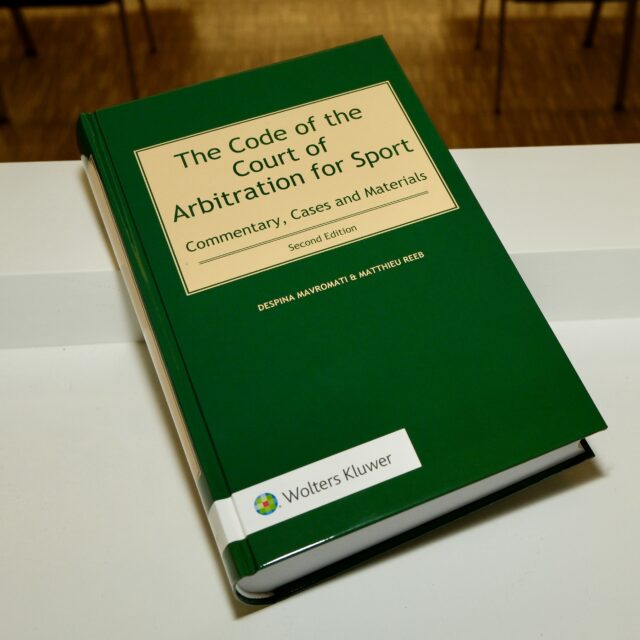SFT Judgment 4A_50/2017 (commercial arbitration) Violation of Ne Ultra Petita & Public Policy X1 Ltd & X2 SA v. Z. Ltd
The Issue
No violation of Ultra Petita if no legal interest worthy of protection; Conditions under which acts of corruption can lead to a violation of substantive public policy under Art. 190 (2) (e) PILA
The Facts
Based on two consultancy Agreements (regulated under Swiss law), the companies X1 and X2 assigned to Z the task to help them with the submission of offers related to a rail project initiated by A. The arbitral clause for disputes resulting from the execution of the two Agreements provided for a three-member panel under the administration of the International Chamber of Commerce (ICC) in Paris and with seat in Geneva, Switzerland.
X1 and X2 refused to pay Z EUR 1’555’000 based on the first contract, and EUR 1’569’150 based on the second contract. X1 and X2 justified their refusal to pay alleging various criminal investigations of Z related to suspicions of corruption with respect to the project, in the USA and the UK. They alleged risking serious criminal sanctions if they paid the outstanding amount to Z and subsequently terminated the consultancy agreements for serious breach of contract by Z.
The Federal Tribunal judgment
Z initiated the ICC arbitration proceedings. The panel rendered the final reward in favor of Z, finding, also that X1 and X2 breached the consultancy agreements by failing to pay Z the two payments.
X1 and X2 subsequently filed an appeal to the Swiss Federal Tribunal alleging that the arbitral tribunal had ruled beyond what was submitted to it (violation of ne ultra petita, Art. 190 (2) c PILA) and violated public policy (Art. 190 (2) e PILA).
a) No violation of ne ultra petita if no legal interest worthy of protection
The Federal Tribunal rejected the argument regarding violation of ne ultra petita for lack of legal interest. In fact, the Appellants’ sole ground was that the operative part of the award included unnecessary findings without a specific scope. This was not an interest worthy of protection as the Federal Tribunal has repeatedly held (see also Art. 76 (1) (b) LTF that applies to all grounds of Art. 190 (2) PILA when annulment is sought).
In this case, the Arbitral Tribunal ordered the financial compensation that was still below the requested amount. Even though it wrongly included in the operative part the reason for each of the penalties, this cannot qualify as a violation of ne ultra petita within the meaning of Art. 190 (2) (c) PILA. The Federal Tribunal thus once again confirmed the very limited scope of this ground for appeal and the importance of having a legal interest in invoking this ground (see 4A_50/2017 at 3).
b) Violation of substantive public policy linked to corruption allegations
X1 and X2 alleged a violation of substantive public policy on the basis that the arbitral tribunal ordered them to make a payment that would violate their “rules of compliance” with respect to the fight against corruption and would therefore be liable to heavy criminal sanctions (4A_50/2017 at 4.3).
First, the Federal Tribunal highlighted the bad faith of the Appellants, since other companies of the same group (X) had unsuccessfully invoked the same grounds before the Swiss Federal Tribunal in the past (at 4.3.1). The Federal Tribunal further noted that it was the same legal team representing the companies of the same group and the same arguments in order to avoid paying their debt (see also 4A_69/2009 of 8 April 2009, 4A_213/2014 of 23 September 2014, 4A_247/2014 of 23 September 2014, 4A_532,534/2014 of 29 January 2015 & 4A_136/2016 of 3 November 2016).
In any event, the Federal Tribunal held that bribery is illegal and is therefore considered null and void under Swiss law (4A_50/2017 at 4.3.2). However, for the bribery to be contrary to public policy in the meaning of Art. 190 (2) (e) PILA, the parties must clearly establish it and the arbitral tribunal must refuse to take it into account (ATF 119 II 380 at 4b; see also 4A_136/2016). In the present case, the contract did not include a provision that could infer bribery, however, there were indications that the Respondent (Z) might have used the disputed amounts in order to bribe other officials. The Arbitral Tribunal had indeed examined all these allegations and reached the conclusion that the offense was not established. Its appreciation fell therefore outside the scope of review of the Federal Tribunal.
As to the argument that the payment to Z would be contrary the Appellants’ « Compliance Rules », the Federal Tribunal referred to its previous similar judgment holding that it is not for a group of companies (as a private law entity) to define what falls within public policy and therefore its qualification had no value before the Federal Tribunal (ATF 132 III 389 at 2.2.3). Moreover, a criminal act (corruption or other) is against public policy if it has been established under the pertinent legal system (in casu in England) or at least a criminal investigation has started in this respect (4A_50/2017, at 4.3.4).
The Takeaway
This is a commercial arbitration (i.e., not CAS-related) that was interesting for several reasons. First, the Federal Tribunal highlighted the limited scope of the plea of violation of ne ultra petita (Art. 190 (2) (c) PILA), which requires a legal interest worthy of protection in line with Art. 76 (2) (b) LTF.
Apart from the legal interest missing in this case, the Federal Tribunal also found that the final amount was inferior to what was requested. In fact, in line with consistent jurisprudence, there is no violation of this principle if the final amount granted does not exceed the amount requested (4P.54/2006 of 11 May 2006, A., at 2.1; see also Mavromati / Reeb, Commentary of the CAS Code, Kluwer Law International 2015, p. 574).
Additionally, the Federal Tribunal showed the limited scope of the plea of corruption in many respects: (1) it is not for a private law entity (in casu the group of companies) to define the scope of substantive public policy (through their “compliance rules”); (2) for a company to justify the non-payment of a debt for corruption under Swiss law, corruption has to be established. Moreover, the arbitral tribunal must simply refuse to consider it in the award (what was not what happened in the present case).
Finally, the Federal Tribunal found that it is against the principle of good faith for companies of the same group to (unsuccessfully) and persistently bring forward the same argument before the Federal Tribunal, especially when they are represented by the same counsel (4A_50/2017, at 4.3.1).







